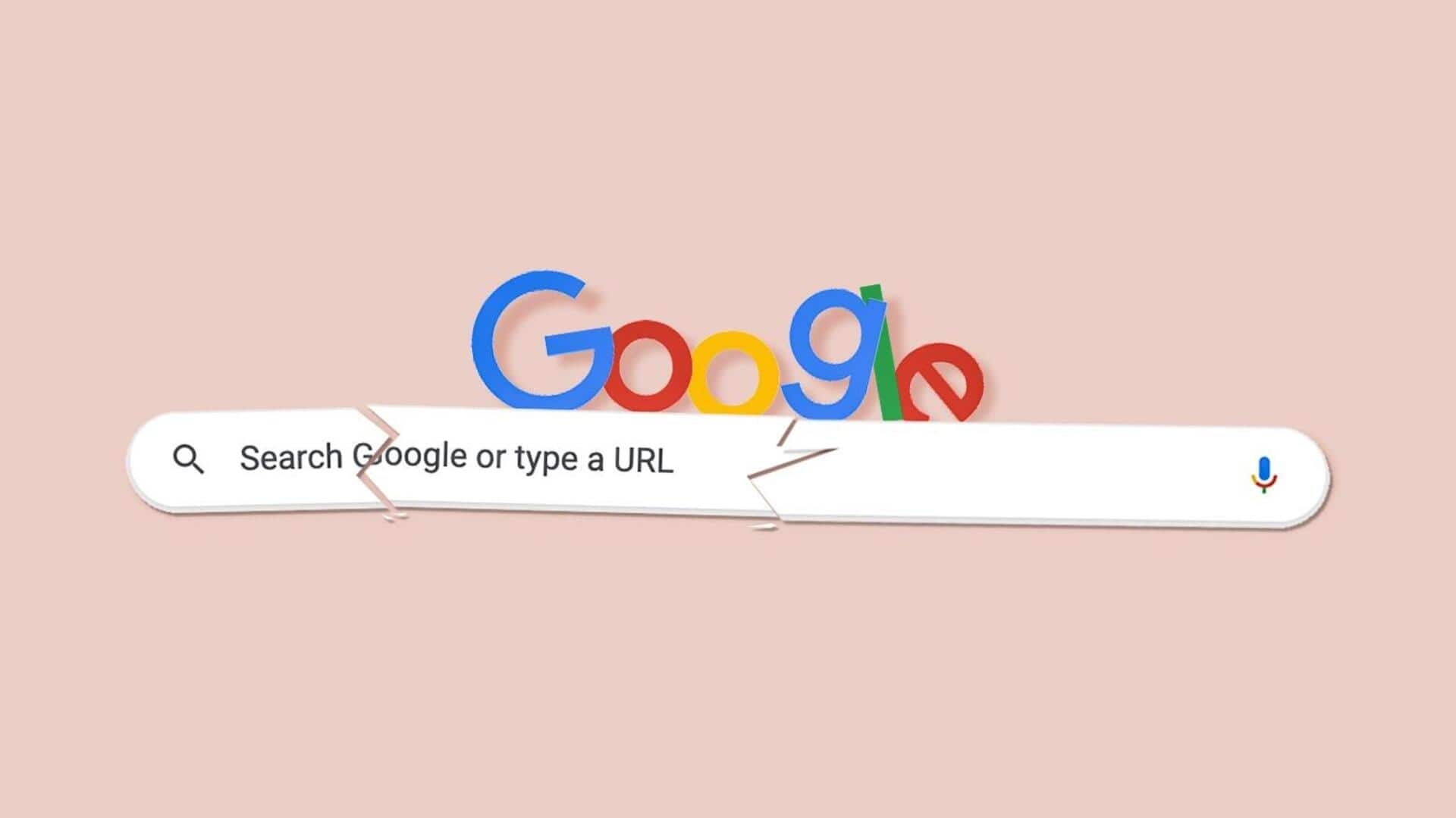
Your Google Search results could be wrong, thanks to AI
What's the story
Google, the top search engine globally, is famous for its frequent updates and modifications. However, of late, certain search results have been leading users astray. And there's a reason behind it! Spammers have been using artificial intelligence (AI) tools to flood the internet with content, and Google's algorithms sometimes prioritize machine-generated pages over the relevant information you seek. This might disrupt your Google Search results by showing deceptive targeted advertisements and inferior websites above non-sponsored and genuine content.
Context
Why does this story matter?
Google is said to be more dependable than its rivals. Being the go-to search engine for the majority of users worldwide, it is utilized extensively on a daily basis. However, despite its dominance, there remains a considerable amount of irrelevant/spam content on Google. The proliferation of generative AI only exacerbates this issue. It is bothersome at its mildest. At its most severe, it can expose you to scams aimed at obtaining your banking/credit card details and other sensitive personal information.
Search and results
AI-generated content appearing in results
Nowadays, spammers have adopted a new strategy to achieve high rankings in search results: posting content on reputable platforms that Google typically favors, including LinkedIn, Reddit, and Quora. Moreover, generative text chatbots have streamlined the production of such content. While Google remains vigilant against spammers utilizing software to generate keyword-stuffed nonsense, not all content generated by AI inherently breaches Google's spam guidelines. If the quality of AI-generated content meets certain standards, it may indeed appear in search results.
Less relevant links
Lower-quality snippets appearing more than ever before
During your searches, you often see a highlighted "snippet" at the top of the page, sourced by Google's algorithm as authoritative content, eliminating the need for further clicks. Featured snippets provide brief answers to questions, but they can sometimes contain incorrect information. This happens when less reputable sources occupy this prominent position. According to Google, commonly searched terms will lead to official information sources, whereas less frequent terms might result in lower-quality pages being prioritized.
Accuracy concerns
Harder to differentiate between spam ads, genuine information
Google's search results typically commence with a barrage of ads, often requiring users to scroll past them to access organic links. This inundation of advertisements provides an opportunity for bad actors to lure customers and divert traffic from legitimate sources. Although Google removes billions of non-compliant ads annually, users are still advised to exercise caution and verify the credibility of links. Visit only authoritative sources like a company's official website for accurate information, especially concerning customer service or product details.